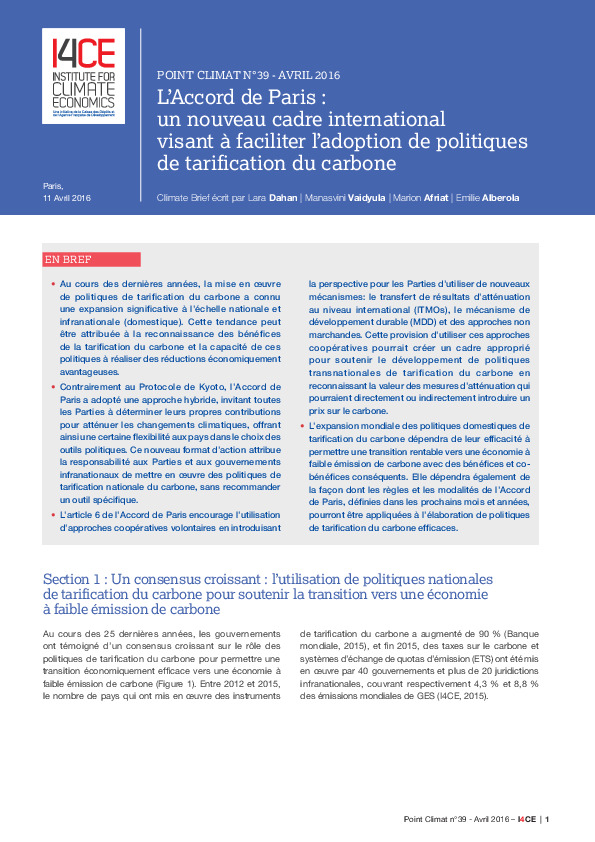The Paris Agreement: a new international framework to facilitate the uptake of carbon pricing
• Over the past few years, the implementation of domestic carbon pricing has been expanding at the national and sub-national level.
• In contrast to the Kyoto Protocol, the Paris Agreement has adopted a hybrid approach calling on all Parties to determine their own contributions to mitigate climate change affording flexibility to countries in their choice of policy tools.
• Several provisions within the Paris Agreement could create a suitable framework to support the development of transnational carbon pricing policies by recognising the value of mitigation actions which could directly or indirectly put a price on carbon.
• Overall expansion of domestic carbon pricing policies will depend on whether it can enable a cost-effective transition to a low-carbon economy with subsequent benefits and co-benefits. Additionally, it will depend on how the rules and modalities defined in the coming months can be applied to the development of effective carbon pricing policies
